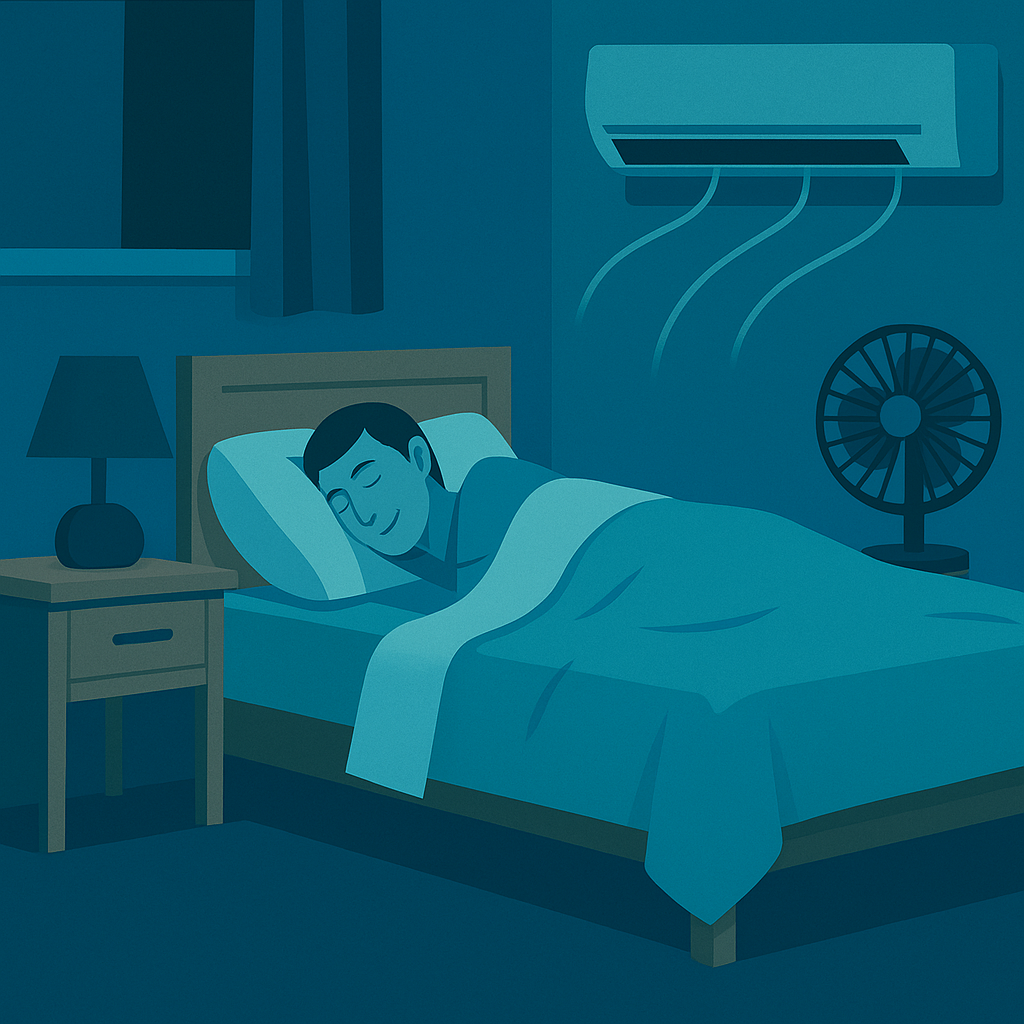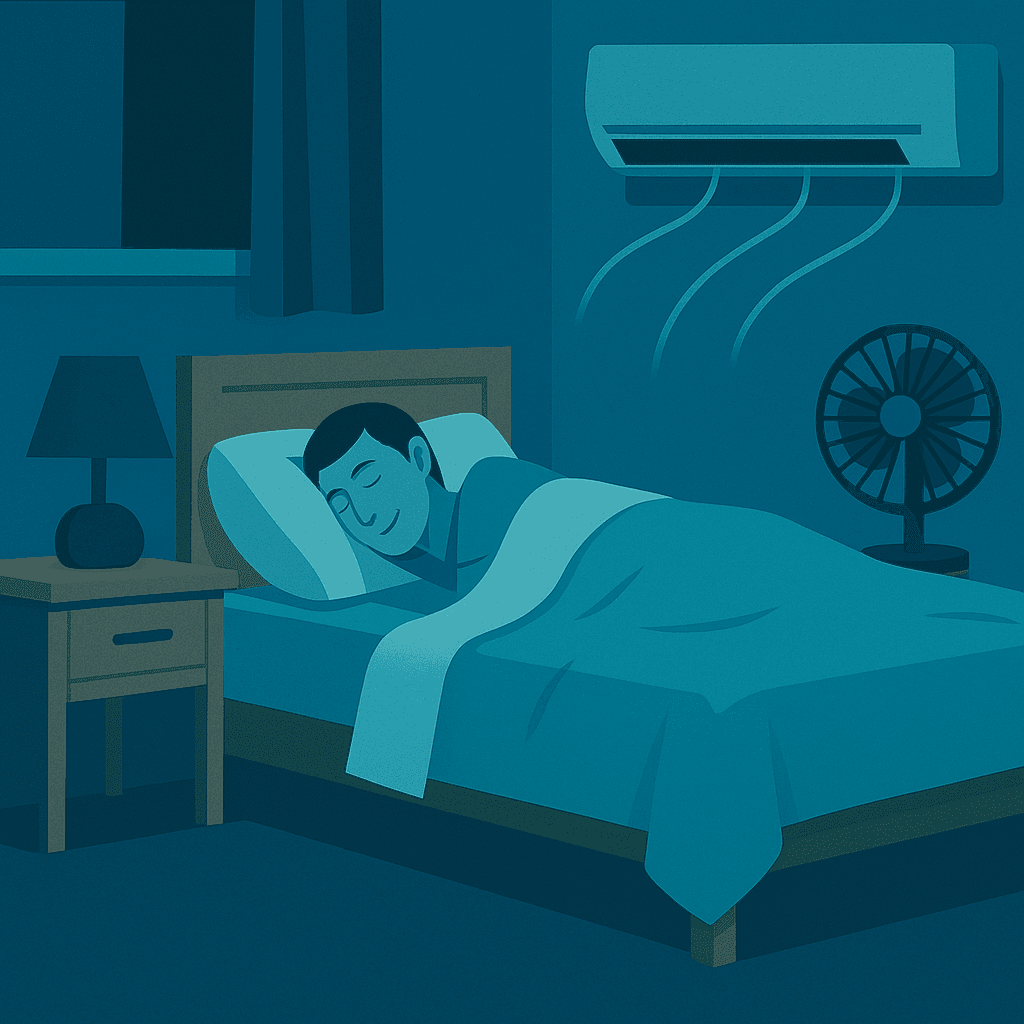Circadian Rhythms: Your Body's 24-Hour Clock
On Monday morning, your alarm drags you out of bed at 6:30 a.m. By 2 p.m., eyelids sag, and coffee becomes less a ritual than a survival tactic. Friday night, you stay out late; Saturday you sleep in until 10 a.m. By Sunday night, you're staring at the ceiling, wide awake, though the workweek looms. You haven't crossed a time zone, yet your body feels jet-lagged. Scientists call this social jetlag -- a clash between the schedule your biology prefers and the one society demands.
That dissonance traces back to one of biology's most elegant systems: the circadian rhythm. Far from being a simple "sleep timer," your body clock orchestrates everything from hormone release to metabolism, from immune defenses to mood. It is, in the words of chronobiologists, not just a clock but a conductor, keeping a symphony of cellular processes in sync. And in the 21st century -- with screens, night shifts, and always-on culture -- that symphony is more out of tune than ever.
The Clockwork Within
The term circadian comes from the Latin circa diem -- "about a day." Virtually every organism on Earth carries internal rhythms that run on a roughly 24-hour cycle. In mammals, the master conductor sits deep in the brain: the suprachiasmatic nucleus (SCN), a cluster of ~20,000 neurons in the hypothalamus. These neurons tick even in isolation, but they stay in sync thanks to light signals entering through the eyes.
Light is the primary zeitgeber -- German for "time giver." Morning light hits specialized retinal cells and resets the SCN. Cortisol (alertness) peaks soon after dawn; melatonin (darkness signal) rises in the evening. These curves bookend wakefulness and sleep. For actionable guidance on melatonin timing, see our Timing & Doses deep‑dive.
But the clock isn't only in the brain. Nearly every cell has its own timekeeper run by "clock genes" like PER and CRY (Nobel Prize, 2017). The SCN synchronizes these cellular clocks so the liver times metabolism, the heart anticipates blood-pressure shifts, and the immune system primes nighttime repair.

Morning light anchors the clock; cool, dark evenings help melatonin rise and promote deeper sleep.
From Plants to Nobel Prizes: A Brief History
In 1729, Jean-Jacques d'Ortous de Mairan showed plants in darkness still obeyed a 24-hour rhythm. Centuries later, humans in time-isolated caves did, too. With EEG in the 20th century, we learned sleep has stages (N1, N2, slow-wave N3, and REM) that interact with circadian timing. In the 1990s, molecular feedback loops behind the clock were decoded.
Then: Sleep was passive rest.
Now: Sleep is structured and active; circadian timing is central to metabolism, mood, cardiovascular health, and cancer risk.
The Modern Clash
Light That Never Ends
Pre-electricity evenings were firelight (red/orange; weak melatonin suppression). LEDs and phones emit strong blue light, delaying melatonin and sleep.
Climate Control
Body temperature should dip at night. HVAC flattens day-night differences; outdoor "camping" studies show melatonin re-anchors to solar time within days.
The Social Clock
Two-thirds of adults experience social jetlag: later weekends, early weekdays. This weekly shift links to higher BMI, worse mood, and metabolic strain.
Why This Matters
- Metabolism: Late eating hits lower insulin sensitivity, worsening glucose spikes.
- Cardiovascular: Morning BP surges align with higher heart-attack incidence; chronic misalignment raises risk.
- Mental health: Circadian misalignment contributes to depression/bipolar -- timing therapies target alignment.
- Immunity: Vaccine responses and cytokine rhythms follow the clock.
Living With the Clock
- Morning light: Get outside within an hour of waking.
- Consistent window: Keep regular bed/wake times (even on weekends).
- Meal timing: Front-load calories earlier when metabolism is more efficient.
- Evening wind-down: Dim lights, reduce screens, and let temperature fall.
Even partial alignment -- sunlight, steadier bedtimes, earlier meals -- cuts social jetlag.
Looking Ahead
Clinical "chronotherapy," clock-aware building lighting, and wearables that estimate circadian phase point to a future that works with biology, not against it.
Circadian Rhythm FAQs
Circadian Rhythm FAQs
- What is the circadian rhythm in simple terms?
- Your internal 24-hour clock, led by the brain's SCN, coordinating sleep, hormones, metabolism, and mood.
- Which hormones are most tied to circadian timing?
- Cortisol (morning alertness) and melatonin (nighttime sleep signal). Others like insulin, growth hormone, and leptin cycle too.
- How does blue light affect the clock?
- Evening blue light suppresses melatonin and shifts the clock later, delaying sleep.
- What is social jetlag?
- The mismatch between your body clock and social schedule--late weekends, early weekdays--linked to metabolic and mood issues.
- Can you reset your circadian rhythm?
- Yes: morning light, consistent sleep times, earlier meals, and limiting night screens are the most effective levers.
- Why do circadian rhythms matter for health?
- They regulate metabolism, immunity, and cardiovascular timing; disruption raises risks across systems.
Related reading: What Is Sleep? · Sleep hygiene · Best cooling sheets
